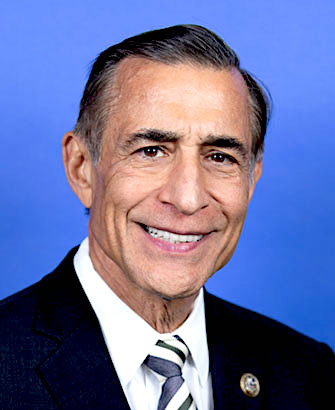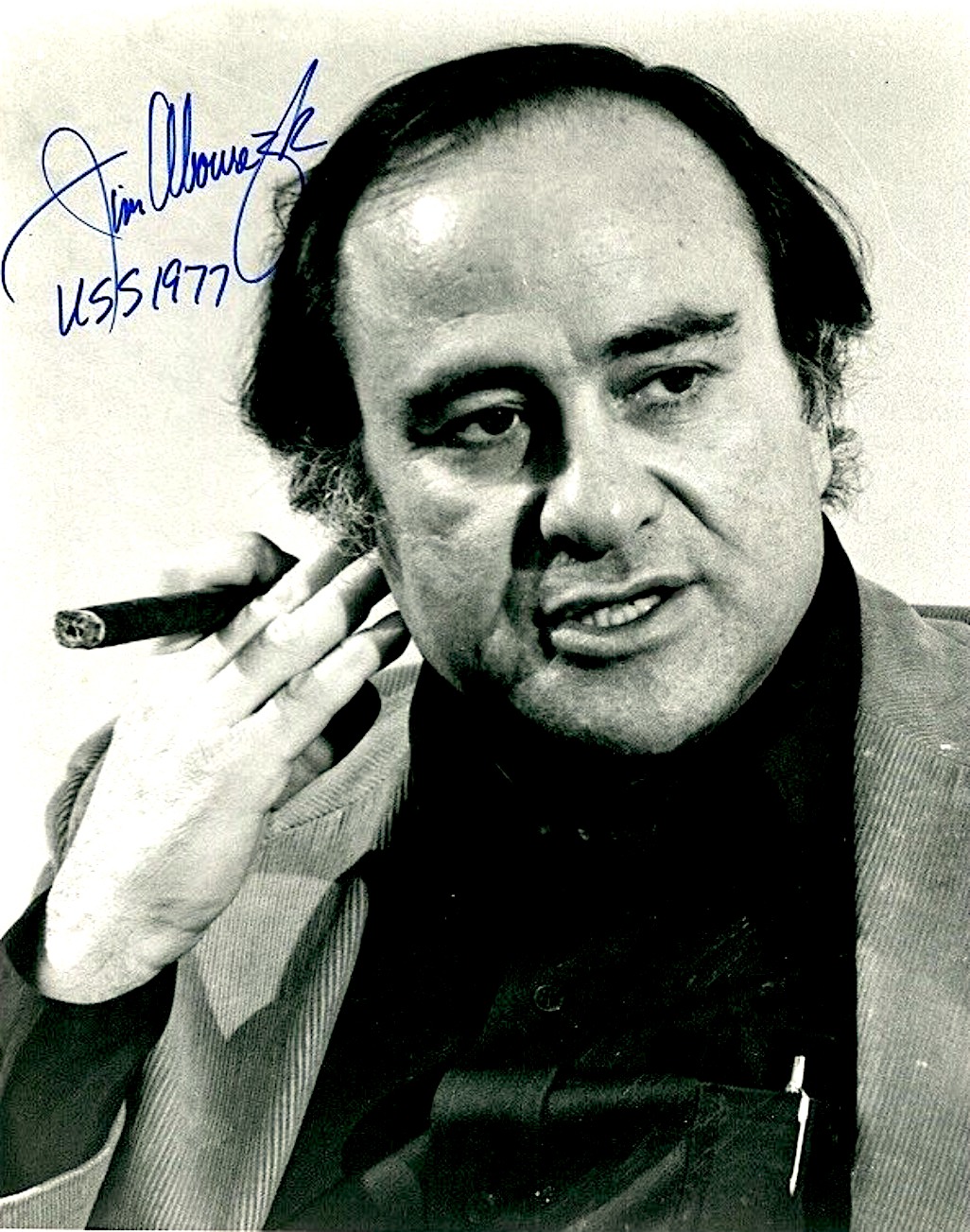The U.S. election could ride on the results in the state of Michigan and Arab-American and other Muslim votes could determine who wins Michigan.

U.S. Rep. Rashida Tlaib protesting Israeli Prime Minister Benjamin Netanyahu’s speech to U.S. Congress on July 24. (C-Span screenshot)
By As`ad AbuKhalil
Special to Consortium News
 Since moving to the United States in 1983, I have never witnessed an election — state or federal — where the votes of Arab-Americans mattered.
Since moving to the United States in 1983, I have never witnessed an election — state or federal — where the votes of Arab-Americans mattered.
They have never been a significant and publicly acknowledged political factor. Arab-Americans have rarely been courted by state or presidential candidates. When President Harry Truman decided to extend recognition to the State of Israel, he noted an absence of Arab-American activists and lobbyists.
Until now, Arab-Americans have been a largely invisible, marginalized people. Indeed, for a long time, seeking the support of Arab-Americans was a stigma for any candidate.
Although they make up a small portion of the voting population — roughly 1 percent — the Electoral College is making Arab-Americans count on Tuesday as it distorts presidential elections, making pivotal battleground states.
The Electoral College originally aimed to give weight to all states, but now candidates rarely campaign in reliably blue or red ones. Republican candidates visit California mainly for fundraising.
The sudden attention on Arab-American voters is all the more startling as they have been maligned and stereotyped in American society since the early 20th century.
A review of The New York Times from that era reveals openly racist portrayals of Arabs and Syrians, including Christian Syrians. It reflected the colonialist attitude toward indigenous populations, where Arab-Americans were seen as outsiders, never truly invited to belong.
Lebanese, particularly Lebanese Christians, often sought to distance themselves from other Arabs, believing that their Christian faith might shield them from racial discrimination.
Some Lebanese even petitioned the U.S. government to be classified as “white,” a plea that was granted, leading the Census Bureau to classify Arabs as white. This classification reflects the U.S. government’s racialized distinction between North and Sub-Saharan Africa, a categorization rooted in racist ideologies.
Despite their small numbers, Arab-Americans have shown high voter turnout, attributed to the educational and professional qualifications often required for Middle Eastern immigrants to gain U.S. entry.
The relative affluence of Middle Eastern immigrants in America stems not from success or talent but from restrictive immigration policies that favor skilled professionals over blue-collar workers from other regions.
Historically, immigration laws favored Christians over Muslims, partly because the U.S. government, under pressure from evangelical and other Christian groups, viewed them as a persecuted community — even when, as in Lebanon, Christians held political power without being a majority.
Congressional Representatives

Issa in 2022. (U.S. House of Representatives, Wikimedia Commons, Public domain)
In states like Ohio, Michigan, Virginia and West Virginia, Arab-Americans have become involved in elections, even fielding candidates. However, those elected to Congress have usually aligned with established Democratic or Republican stances on the Middle East.
For instance, U.S. Rep. Darrell Issa (R-CA) aligns with the Republican Party’s support for Israel, while former Democratic Rep. Nick Rahall of West Virginia sought to establish an independent course.
Notably, most Arab-Americans in Congress have been Christian, often identifying as Lebanese rather than Arab, with former Rep. James Abourezk, a Democrat, the notable exception (he was elected in 1972 from the state of South Dakota). Abourezk, the first openly Arab-American senator, proudly celebrated his heritage and often spoke on issues affecting Arab-Americans.
While he initially supported Israel, his views shifted after traveling to the region, leading him to advocate a more “balanced” approach. After retiring, he founded the Arab American Anti-Discrimination Committee, the most influential Arab-American organization in U.S. history.
Unlike earlier groups, which primarily represented wealthy businesspeople, Abourezk aimed to create a grassroots organization with branches in all 50 states, promoting the Arab cause without supporting one Arab faction over another.
Abourezk was radicalized by his experience in the Senate and he warned of the heavy influence of AIPAC (the Israel lobby) in U.S. politics. He also spread knowledge of the Palestinian cause among the American people, and also among the new generation of Arab-Americans who may not have been fully informed of the history of the Palestine problem.

Abourezk circa 1977. (Handout photo, Wikimedia Commons, Public domain)
After the Gulf War in 1991, Gulf Arab governments, which had funded most Arab-American organizations, withdrew support, focusing instead on arms deals and appeasing AIPAC. Arab-American organizations declined, and deepening sectarian divisions in the Middle East further weakened the community’s lobbying power.
Arab governments instead began lobbying independently, often through AIPAC and its affiliates. Saudi Arabia, UAE, Morocco, and Bahrain are open allies of AIPAC and they often rely on the organization to lobby for their arms requests.
Revitalized Activism
Recent Israeli military actions have revitalized Arab-American activism in the U.S. For the first time, the movement for Palestinian rights is led by passionate Arab-American women, predominantly Palestinian-Americans.
This new leadership rejects the constraints of prior organizations, openly advocating for Palestinian liberation, including calls to boycott Israeli institutions and denouncing the recognition of a state built atop Palestinian land.
In this context, Michigan elected its first Palestinian-American woman to Congress (Rashida Tlaib), reflecting the growing political consciousness of Arab-Americans, especially in Michigan, which has the largest Arab-American community in the country. Many of them in Michigan, politically galvanized by Israeli actions, now realize their influence.
Aware of their potential electoral impact, they have lobbied the Democratic Party and the U.S. government to address the crises in Gaza and Lebanon. But the Democratic Party, taking minority communities for granted, failed to deliver meaningful change.
The Biden administration initially claimed to be working toward a ceasefire, yet a year later, that assurance rings hollow. Reports of Biden’s private remarks critical of Israeli Prime Minister Benjamin Netanyahu haven’t restored Arab-American trust but were instead taken as insults to Arab-American intelligence.

With growing political clout, young Arab-Americans are less likely than older generations to align with the Republican Party, but they are also disillusioned by the Democratic Party’s Zionist-aligned leadership.
As Arab-American influence continues to grow, the vote in Michigan remains uncertain, with potential support for the Green Party or even former President Donald Trump, simply as an alternative to Biden.
As Arab-American political power rises, candidates may find it less expedient to use bigoted rhetoric toward Arabs and Muslims. Yet the persistence of such attitudes, as seen in Bill Clinton’s recent disparaging remarks, suggests that some racist habits die hard.
(During her first Senate run, Hillary Clinton once returned a check from a Muslim-American donor under political pressure. This reflects the longstanding, fraught relationship between American candidates and Arab-American support. )
Arab-Americans’ political clout remains limited by virtue of popular and official bigotry against Muslims and Arabs in the U.S. AIPAC can decide the parameters of speech regarding the Arab-Israeli conflict, and the uber-Zionist Anti-Discrimination League works closely with the big social media and communications company to suppress and censor articulation of the Palestinian position.
For Arab-Americans there isn’t much difference between a Republican and Democratic candidate, but it’s indubitable that it is this Democratic administration which is chiefly responsible — with Israel — for the genocide in Gaza.
Donald Trump can’t be trusted to advocate for a just solution in the Middle East, but he enters office untainted by genocide. Nevertheless, it is unlikely that he will change course, and may even call for more genocide.
In Michigan, Green Party candidate Dr. Jill Stein was polling far ahead with Muslim Americans in that battleground state, according to a survey by the Council on American-Islamic Relations (CAIR) published in early September.
Nationwide, Stein and the Democrats’ Kamala Harris were in a statistical tie among Muslim American voters, according to CAIR’s latest survey, released days ahead of the election.
As`ad AbuKhalil is a Lebanese-American professor of political science at California State University, Stanislaus. He is the author of the Historical Dictionary of Lebanon (1998), Bin Laden, Islam and America’s New War on Terrorism (2002), The Battle for Saudi Arabia (2004) and ran the popular The Angry Arab blog. He tweets as @asadabukhalil
The views expressed are solely those of the author and may or may not reflect those of Consortium News.

I just voted here in Michigan. Let me tell you it is not just Arabs or Muslims who see genocide as a red line. Social media has covered what is being done, and especially younger people feel the reality of it as starkly as my generation felt the Vietnam War.
Go Jill! I sincerely hope a political earthquake will happen in Michigan. Make these genocidal freaks sit up and take notice.
This article exactly describes the conundrum I found myself in, casting my ballot in the 2024 General Election for U.S. President. Although Dr. Stein would be my ideal choice, I voted against The Monster by voting for his Compmetitor, and have been praying that whomever wins the election will somehow end this horriffic genocide of the Palestinian people, or at the very least, take a stance against it by ending the U.S. funding of Israel’s war, or rather Israel’s Monster’s war. No, I’m not Palestinian or a Muslim, I’m just an elderly woman who can disgtinguish between right and wrong. God bless America and the World; we need it…
Do you often engage in magical thinking?
Actually, I got this message from team Kennedy when I inquired. I think he is the best hope for affecting change and peace for the Middle East. They write this:
Team Kennedy Info via helpscout.net
Oct 27, 2024, 9:12?AM (8 days ago)
to me
Hello John,
Mr. Kennedy is the only candidate actively engaged with Israelis and Palestinians seeking out solutions to permanently end the 1,300 year old Arab-Jew conflict.
These podcasts are worth the listen because they articulate the social, political, economic, and theocratic nuances that you can’t find anywhere else.
Path to Peace Part I
hxxps://podcasters.spotify.com/pod/show/rfkjr/episodes/Path-To-Peace-Episode-One-e2ggvgl
Path to Peace Part II
hxxps://podcasters.spotify.com/pod/show/rfkjr/episodes/Path-To-Peace-Episode-Two-e2jka69
Path to Peace Part III
hxxps://podcasts.apple.com/us/podcast/path-to-peace-episode-3/id1552000243?i=1000663603766
All the best,
Team Kennedy
What’s at issue here is not at all “the 1,300 year old Arab-Jew conflict”. The problem is the ongoing, about 75-year-old Zionist settler colonial/apartheid project. Not surprised to see that sort of nonsense from Kennedy, who has sounded like nothing more than a thoroughly-bought politician completely willing to let AIPAC open up his head and pour in ideas for him to spout.
Hoping to see Jill Stein be a spoiler for Harris in Michigan, thanks to the strength of its Arab-American voters.. Michigan’s electoral votes could be the difference in a close election. Surely the Democrats would scream if this were to happen. Too bad Dems! Next time around maybe you might want to listen to the voters who want an end to endless wars and Israeli genocide.
I also voted for Dr. Stein. If she gets enough votes, we can maybe build the Green Party into something that can challenge the duopoly.